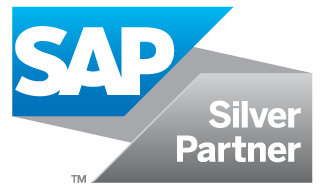
In today’s digitized market, ERP (Enterprise Resource Planning) systems are no longer optional but are indispensable for companies aiming to consolidate their operations, enhance productivity, and attain a lead over competitors However, the plethora of vendors offering supposedly customized solutions in the market can make it quite difficult to find the right ERP partner.
Correctly selecting the wrong partner may result in very expensive delays, incompatibilities, and a system that does not fit your business growth. Here is a guide illustrating the way to select the correct ERP vendor in a competitive market.
Understand Your Business Needs
Have a clear vision of what your ERP system needs to do, even before considering vendors. Does your objective in streamlining finance, better managing inventory, automating HR, or improving reporting? Write down the exact challenges your company faces and the goals you want to achieve.
That will eliminate vendors who offer generic solutions and focus on those who meet your industry-specific needs.
Evaluate Industry Experience
One size does not fit all ERP vendors. A few vendors are dedicated to providing ERP solutions only for a certain industry, such as manufacturing, healthcare, or retail. A seller having profound industry experience would be the one who is familiar with your workflow, compliance requirements, and operational problems.
In this specific case, Sofgen has a good history with SMEs, particularly those engaged in manufacturing, to provide more customized ERP solutions that offer great flexibility and scalability.
Consider Customization and Scalability
The ERP system should mature with your business. Do invest in a solution that does not need vendor hand-holding for customization. For instance, a few questions that might be relevant:
- Are the workflows flexible enough to be changed/modified easily?
- Can one integrate his third-party tools into it?
- Does it support multi-location or international operations?
Scalability is the name of the game: an ERP may do the job today, but in five years it should be doing a whole lot more.
Analyze Total Cost of Ownership (TCO)
Price matters, but the lowest upfront cost doesn’t always mean value. Look at the total cost of ownership:
- Licensing and subscription fees
- Implementation and training
- Customization and ongoing support
- Upgrade and maintenance costs
Ask each vendor to provide a thorough breakdown and compare apples to apples. An experienced provider will give you a complete understanding of costs and timelines.
Assess Integration Capabilities
Most businesses already use software for accounting, CRM, or payroll. A good ERP system should easily connect with the tools you already have, not be a complete change of all the investments made.
Request for demonstrations that illustrate how their ERP can be linked up with the applications you have. A bad integration situation may result in double work, wrong data, and a frustrated team.
Check Support and Training Services
The implementation of an ERP system is not only a technical project but also a change management process. A suitable partner will be there for you during implementation, transfer, and continuous service.
- Local or dedicated support teams
- Access to user training and documentation
- Regular updates and security patches
- Post-implementation support and hand-holding
Such as Sofgen, which emphasizes this area by merging deep ERP understanding with practical training and customer support, which is particularly beneficial for businesses that have just introduced ERP systems.
Ask for References and Case Studies
Real-world experience is the most convincing factor. Potential vendors should be asked to provide references or case studies which are related to your industry or company size. If it is feasible, talking to current clients regarding their experience will be the best, particularly in the areas of implementation, support, and system performance.
Final Thoughts
Choosing the right ERP provider is a decision that affects your entire organization. It is not just the choice essentially must be made for a partner to walk with you in the long journey, one who understands the business, grows with you, and is genuinely concerned for your success.
In this crowded ERP market, carefully evaluating vendors can save your business a lot of time, money, and headaches in the future. Again, whether it is Sofgen or otherwise, the real success factors are alignment, transparency, and long-term capability.





